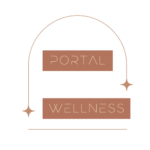If you have ADHD you may be familiar with the term Rejection Sensitivity Dysphoria (RSD).
RSD, which was originally coined by Dr. Dodson, is the intense emotional sensitivity to perceived or real rejection.
SO much so that people with ADHD report reactivity, extreme emotional distress, avoidance and hyper-vigilance of situations that could lead to rejection, and people pleasing behavior.
The current understanding of RSD is that this is a biological mechanism possibly relating to emotional disregulation, another symptom of ADHD.
AND….I don’t buy it.
As a therapist…and someone who has ADHD. The symptoms of RSD sound suspiciously similar to….(drum roll)….a trauma response. Particularly a relational trauma response.

Although ADDitude Magazine (which frequently quotes and cites itself (also sketch)) states in its articles about RSD that it is “not thought to be related to trauma.” However this is not supported with any research or citations.
When looking further into RSD we find that Dr. Dodson, has not been able to provide any research indicating that RSD is biological in nature (as if trauma responses are not?), aside from anecdotal support. We also know there has been very little research on RSD in general.
Part of what is going on here is that having ADHD in this world is not thought in and of itself to be a traumatic experience. I beg to differ.
In fact I would argue the hardest most difficult thing about ADHD is not
forgetting things, distract-ability, or emotional disregulation its…
It’s the subtle messaging over the course of our lives that we are not good enough, not smart enough, not mature enough, incompetent, incapable, can’t be taken seriously, and “too” much in general.
We live in a society that does not support the way Neurodivergent brains work. Period. Leading to constant challenges, lack of support, and then minimization, gaslighting, and centering blame on individuals…instead of collective care.
Because when you grow up internalizing messages that your best is not good enough, your presence is annoying, your a burden to others, your lazy, a failure and often a disappointment…and that your self worth, capacity and deservedness is related to the way your brain works….YOU BECOME FUCKING SENSITIVE TO REJECTION.
You grow up learning that your access to support, community, secure relationships and opportunities depends on your ability to mask some or all of your Neurodivergent traits.
I have countless examples in my own history where I was told indirectly or directly that “I JUST needed to try harder” or “pay more attention” or “that if I really cared I would have remembered/done it better.”
This is consistent with the medical model of mental health as well as oppressive colonial and capitalist perspectives where we pathologize human ways of being that do not work for the system. We blame the individual and center the research, conversation, and treatment on the person experiencing the issue vs the collective conditions. We need to start focusing the conversation on how we treat Neurodivergent people and how that impacts the way they are.
This was article was honestly hard for me to write, because the notion and discourse around RSD being a biological symptom divorced from the context in which it developed – instead of acknowledging that it is likely a trauma response to being a Neurodivergent person…feels so similar to the minimization and gaslighting that has been a huge causal factor in creating that sensitivity to rejection in the first place! And one Neurodivergent folks are all too familiar with.
Relational trauma heals in relationship. The treated for RSD needs to be treated like trauma, as well as treated as a collective response. One where Neurodivergent folk can cultivate relationships that affirm their existence instead of reject it.


